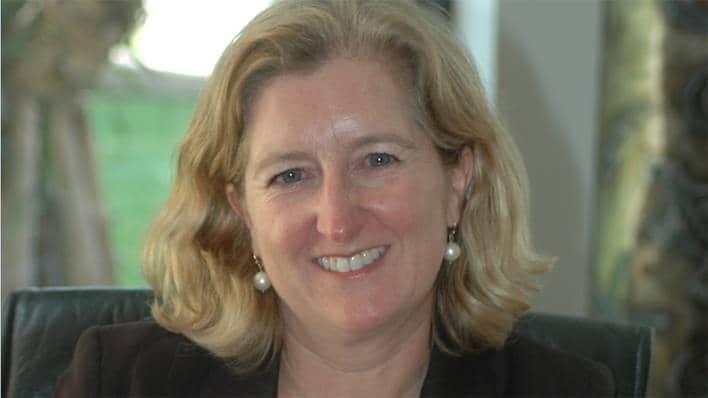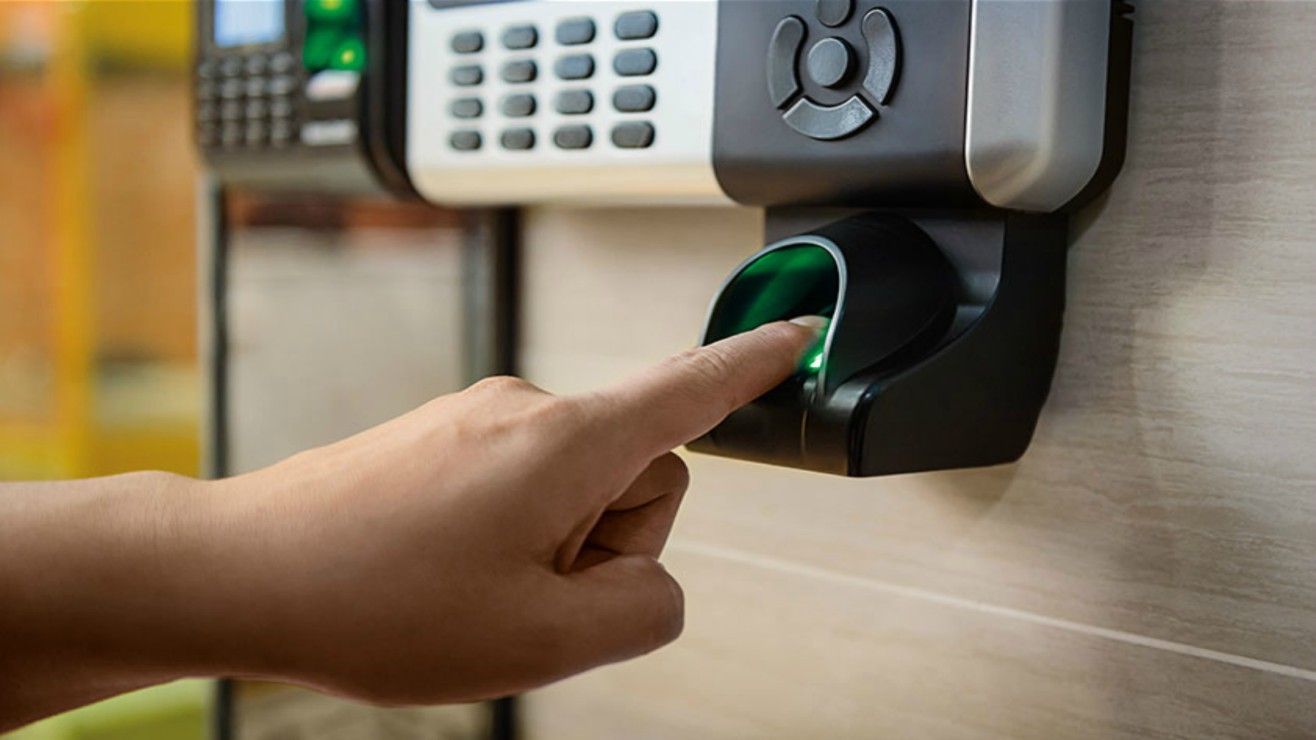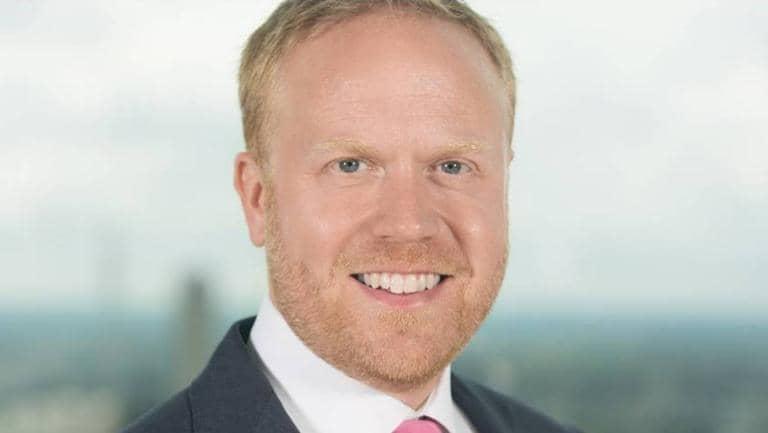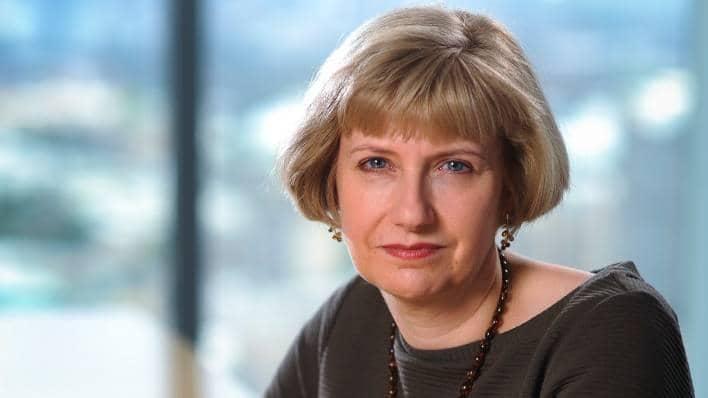
Improving lives in Africa
Susan Payne is leading a unique collaboration between Barclays and healthcare company GSK to transform lives in Africa

Stuart Tootal is Barclays Global Head of Physical Security and is responsible for protecting our people, locations and assets against crime, terror threats and geopolitical troubles. That means overseeing everything from everyday travel, to evacuating our staff in Egypt during the Arab Spring, to ensuring our staff were safe during the terrorist attacks in Paris and Germany.
He has an illustrious military background; in a career spanning over 20 years he has seen active service in the Gulf War and during the invasion of Iraq in 2003 and has been awarded the Distinguished Service Order for his outstanding leadership.
Stuart set up Barclays’ Armed Forces, Transition, Employment & Resettlement (AFTER) programme in 2010, which to date has raised and donated in excess of £3.5m to fund and assist over 4,000 veterans in finding civilian employment.
Stuart, you have an incredible military background, how did you get started, and what made you chose a career in the military?
I come from a military family, so the concept of service came very naturally to me. I wanted to challenge myself, prove my abilities as a leader and experience new and challenging things, all of which the military provided.
Why did you leave and how did you end up at Barclays?
I finished on a real high point in my career, having commanded 3PARA. We were the first UK unit to serve in Afghanistan but unfortunately in 2006 we were not resourced to support our wounded, of which there were many. That really impacted my moral compass and I took the hard decision to leave.
I ended up at Barclays purely by accident. As many others who leave the Military, I didn’t know what I wanted to do. I attended various networking events and heard about the role as Head of Physical Security at Barclays for what was then the retail bank. I applied simply for the interview experience but after 10 hours’ worth of interviews I was offered the role.
The transition was not without its challenges. The Military has a very unified culture with a single set of values and expectations and resource available; Barclays was a very different place when I joined in 2008. It was a huge learning curve for me, but there were good people who helped me as I spent the next two years getting my head around the business and establishing the team.
What does your role involve?
As Global Head of Physical Security, I’m responsible for protecting our people, locations and assets against crime, terror threats and geopolitical troubles. That means overseeing everything from everyday travel, to evacuating our staff in Egypt during the Arab Spring, to ensuring our staff were safe during the Paris attacks and more recently in Germany.
Why did you start the Armed Forces Transition, Employment and Resettlement (AFTER) programme?
Once I’d built my team, I wanted to give back to a community that had given me so much. I’d started to receive a lot of requests for advice from veterans and spotted the opportunity to initially help wounded personnel as they transitioned to civilian life. We started by working with Army and veteran charities, providing not only funding but support with CV and interview workshops.
We successfully hired a couple of wounded veterans, who became such ambassadors of the support they’d received that we decided to open it to all veterans, irrespective of role or Service.
Through the AFTER programme we’ve helped more than 4,000 veterans in their transition to civilian life.
The benefits are clear to see, did Barclays need some persuading?
As with all new initiatives we needed to prove what we were doing. Service personnel are a highly talented group of people with a clear ethos, discipline and set of desirable skills. They have a real sense of accountability and responsibility, they’re mission-orientated, and that focus is highly sought-after; not only does it make business sense to support them and where possible hire those individuals, but it’s simply the right thing to do.
We now have established routes into the business for the Military for example with internship programmes available across our business units. To date, we’ve hired 375 people directly into Barclays, and are aiming to increase that number to 500 by the end of the year.
You’ve spoken about the transferable skills Military personnel have to offer – could you elaborate on them?
The Military provides you with a grounding and training like no other. Take leadership for example; as soon as you’re commissioned, at the age of 18, 21, you’ll be leading up to 30 people in the most difficult and challenging of circumstances. Significantly, you’re not just trained, but that training is tested, and tested again in live situations. You have to be able to adapt to changing circumstances, motivate your platoon and organise them – it’s no easy task and a highly valuable skill.
The key for veterans is being able to both translate these leadership, planning and communication skills in a way that a corporate hiring manager will understand, but also understanding themselves what they can bring to a corporate environment.
A lot of corporates now seem to be focusing on the benefits of recruiting ex-military personnel –what are they doing?
More and more companies are recognising the benefits veterans can bring to their organisations. But it’s fair to say that Barclays has led the pack and our support is evolving. We’re increasing our Service support, working with the Reserves as well as the MoD, and are developing bespoke banking products that meet the specific needs of the military community.
We’re also taking what we’ve learnt through running the AFTER programme, which has been tried and tested over a number of years, and are sharing best practice across the industry. We’re spearheading a new initiative, Veterans Employment Transition Support (VETS), which complements existing support and provides mentors to veterans as they transition to civilian employment. VETS is an industry-wide initiative, with some great brands on board already.
What's next for you and AFTER?
I’m looking to push the needle with our support of the Military; we’ve achieved a lot, but there’s more to do. We have ambitious targets, both internally, for example to increase the number of ex-military hires we’ve made to 500 by the end of the year, and externally, for example with VETS we aim to have 1000 veterans and mentors signed up by the end of 2017.
It’s a great challenge, and gives something back to a well-deserving community.

Susan Payne is leading a unique collaboration between Barclays and healthcare company GSK to transform lives in Africa

Mark Lewis, Managing Director in European Equity Research – Utilities at Barclays, was asked to join former New York City mayor Michael Bloomberg’s Task Force on Climate-related Financial Disclosure earlier this year

James Allan has worked for Barclays for more than 15 years in a variety of roles, recently heading up UK Cash Management for the Corporate Bank

Wendy Papworth is Director for Diversity & Inclusion (D&I) and also leads Barclays’ group-wide focus on the gender agenda